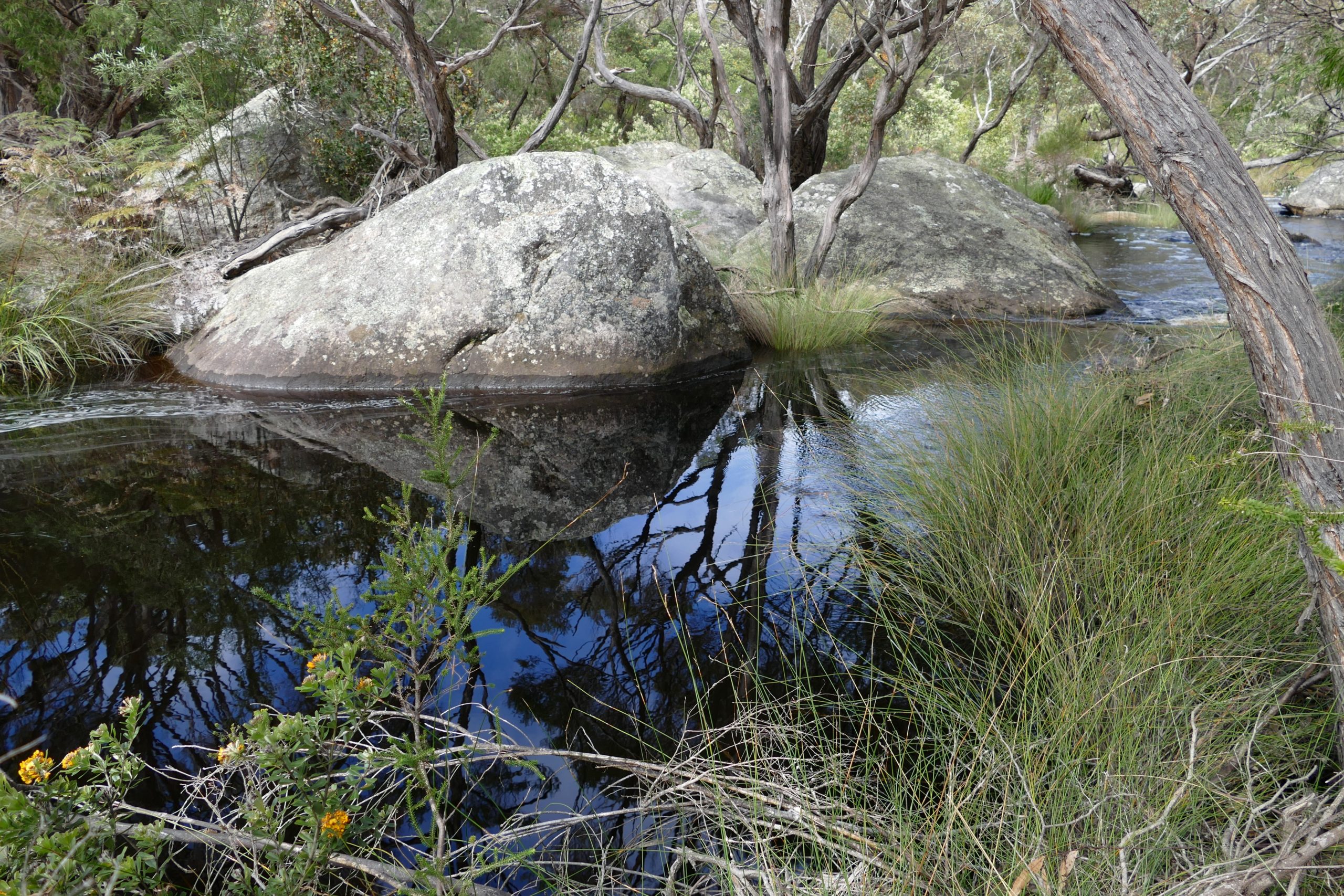Many of us do not Believe.
A non-Believer, however, can still believe in the power of particular places here on terra firma – earthly “paradises” which inspire us, delight us, even heal us.
One uncanny song is named for a place that really did have the same name as the song which so vividly evoked it, and mourned its destruction: Paradise.
We have just lost its author.
(this post’s image – copyright Doug Spencer – shows one of my personal “paradises”. Click here to discover its identity, and much more)
If I were asked to compile a “100 best songs” list, right off the top of my head, it would never be the same list twice.
The proverbial top of one’s head, today, is not exactly the same as it was, yesterday!
However, on whatever day, I know that John Prine would always have more songs in my Top 100 than any other songster – Joni Mitchell, Bob Dylan and Randy Newman included.
At 73, Prine has succumbed to “the virus”; had he survived it, he’d probably have written the definitive song about it!
Most John Prine songs are – simultaneously – “dead simple”, and “anything but…”
They can be searing, or very funny, but are almost unfailingly compassionate rather than cruel, they are never nihilistic, never self-important, and some are among the select few to have made me cry, literally.
He almost never deployed a long, obscure or “difficult” word, yet many published poets have never devised imagery as fresh, as telling, as imaginative, as Prine’s.
where the air smelled like snakes
There’s a hole in Daddy’s arm where all the money goes
You will hear Prine deliver those particular words in this post’s two musical selections.
Even some of his song titles are pure genius:
Speed of the Sound of Loneliness
Unwed Fathers
Your Flag Decal Won’t Get You Into Heaven Anymore
He was also uncommonly good at talking about what was “behind” a particular song, so I’ll preface each of this post’s selections with his own explanation.
Paradise
I wrote it for my father mainly so he would know I was a songwriter. Paradise was a real place in Kentucky, and while I was in the army in Germany, my father sent me a newspaper article telling me how the coal company had bought the place out.
It was a real Disney-looking town. It sat on the river, had two general stores, and there was one black man in town, Bubby Short. He looked like Uncle Remus and hung out with my Granddaddy Ham, my mom’s dad, all day fishing for catfish. Then the bulldozers came in and wiped it all off the map.
When I recorded the song, I brought a tape of the record home to my dad; I had to borrow a reel-to-reel machine to play it for him. When the song came on, he went into the next room and sat in the dark while it was on. I asked him why, and he said he wanted to pretend it was on the jukebox.
Sam Stone
There was a book came out around ’69 called Yellow Back Radio Broke-Down, and that started me thinking that I really like the idea of a broke-down radio. And I remember this old radio my dad had electric black tape all over it. He’d get WSM on a Saturday night listening to this old radio. And I had that in my mind when I had just gotten out of the Army. I got drafted on the same day as about five of my best buddies, and most of them went to Vietnam, and I got sent to Germany.
It was [only] a 13 month tour for Vietnam, right? Some of the guys that weren’t my buddies that got sent to Germany with me, they would do their first three months and then they would volunteer for Vietnam. These guys figured out, “I’m gonna get home three months early if I go to Vietnam.” They came home early – in a box.
Just about everybody I knew got out around the same time, and those guys lives were changed forever, and some of them hadn’t even seen combat. One buddy told me it was just the silence of it all: you hear a bomb go off in the distance and then nothing. He said the enemy was everywhere, but nowhere. And then one night you’d be going to get a beer and a guy would get blown up by a mine crossing the field. So that would keep everybody on edge.
And the drugs were powerful. They come back and they were not the same people. But all of that entered into when I wrote “Sam Stone,” I wanted to say something about veterans in general from that period. And there was a particular newspaper article about some soldiers’ return to San Francisco from Vietnam, and protestors were spitting on them. And I thought, “That’s fucked.” They should be in Washington D.C. spitting on people if they wanted to – but not the soldiers.
I was trying to explain it in real plain terms, you know. A lot of guys did get hooked on drugs and never could get off of it. I was just trying to think of something that would be that hopeless. And you know, I went right to “Jesus Christ died for nothing, I suppose.” I said, “That’s pretty hopeless.”
Both songs appeared on Prine’s eponymous debut album in 1971.
This post’s Paradise is the original version, whilst its Sam Stone is a 2000 “live” performance. The latter concert was shown on public television, then issued on Prine’s own Oh Boy Records in 2001 as John Prine – Live From Sessions at West 54th.
This interview-based piece will introduce newcomers to many brilliant John Prine songs, complete with his own “explanations”.
His Wikipedia entry is here, and this is one of the better, so far, of a rapidly-growing number of obituaries.
